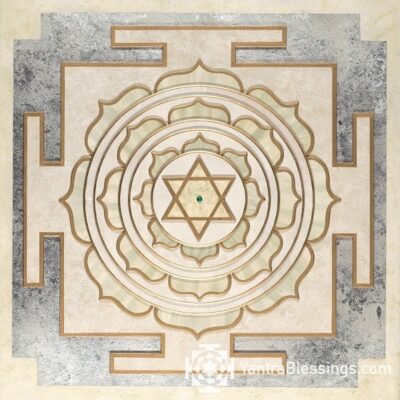Last few days, my son and I have been playing chess. It the first time we have. Of course I lost all the matches. And it felt good. But, it has been a very curious experience. We never played because my son always said, he was not good at it. I have not played since I was 10 yrs. So never really know.
I used to love playing chess as a child. It is one of my favourite grandma stories. While growing up, I had to study till 9.30 pm. And my reward for studying till that time was a chess game with my grandma. I still remember the flat board and the really worn smooth to touch wooden box with a two compartments and a sliding top. It was ancient it belonged to her father. And I would get super excited. I got good at it really quickly. My grandma would ‘cheat’, she would move the pieces and sometimes when I made a move that ‘killed’ her pieces, she would withdraw and say, I was only trying the move out. I would get super frustrated and angry. But I was 7 so didn’t have much say.
But I remember, I would then plan and build those withdrawal moves into my strategy.
It improved my game.
I have used this particular lesson a lot in my life. I would not be an exaggeration to say Chess saved me many times in my life.
Chess mimics life or Life mimics chess. It is also a legacy
The history of chess is intriguing.
Precursors to chess originated in India. There, its early form in the 7th century CE was known as chaturaṅga, which translates to “four divisions (of the military), infantry, cavalry, elephantry, and chariotry. These forms are represented by the pieces that would evolve into the modern pawn, knight, bishop, and rook, respectively.
Chess was introduced to Persia from India and became a part of the princely or courtly education of Persian nobility. The name for the game became Chatrang, which subsequently evolved to shatranj .The rules were developed further during this time; players started calling “Shāh!” (Persian for “King!”) when attacking the opponent’s king, and “Shāh Māt!” (Persian for “the king is helpless” – Checkmate) when the king was attacked and could not escape from attack. These exclamations persisted in chess as it travelled to other lands.
Most importantly, Chess was a foundation to transfer “knowledge of minds and wars” without actually fighting them. The urge to ‘fight’ with and overcome an opponent was redirected to the 64 squares. I’d like to imagine a lot more wars were and are diverted or prevented by it.
And I don’t mean that just literally. There are a thousand wars we fight inside of ourselves and with ourselves. And Approaching them in a finite space of a chess board, helps not overwhelm and navigate “One move at a time”. It helps think our way out of situations in more ‘elegant’ ways. Hopefully without losing to many pieces.
Last year “Queen’s Gambit” was one of the few MOST watched Show. Why I wonder.
I also feel Chess strangely also mimics biology and spirituality.
Is it a coincidence that we have 64 DNA patterns or Codon rings that all our material existence is made up of? By exploring the unique combinations of the 64 permutations of yin and yang (Black and White) -correlation can be formed with the way Amino acids are built in a similar pattern within our DNA. A G U C,(4 divisions).
Is it a coincidence that the ancient change map – I-Ching , has 64 hexagrams which foretell and predict all the various combinations of changes and is still relevant?
Is it a coincidence that the feminine energy, “the Queen” – is so much more versatile?
I don’t think so.
A few things Chess helps and helped me – In Life -in relationships – at work.
Chess teaches you to have a strategy -a plan B and C , while also being tactical.
It has helped me in the beginning of my ‘work’ life, a an entrepreneur, when I got my first ‘work’ assignment. I was 17. It was more a spontaneous saying yes to someone without really knowing the risks. I had a two month break from college, had time, loved programming could use the money. Rs. 3000/. I had to teach twenty, 40 yr old, engineers, oracle programming. They sat, judged and patronised me. I was terrified. I knew oracle, but I did not know the software they were using which they needed to learn about. I thought of quitting once, but the game had already started. I just had to keep making then next move. Every night I would go and research and study the queries they brought up, and next day come and teach.
Chess teaches you to think and see ahead and see the Big picture
After a week of this I got tired and realized I could not keep up. They kept coming up with more and more problems as they started to delve deeper. I could see, that soon, I would burn out and they would still remain dependent. I needed Plan B. Plan B was to come clean and honest to them. Which I did. I told them the truth. That I knew Oracle but did not understand their program. I offered to “Solve with them”. This was and still is my best professional move. Being honest, not pretending to know it all, partnering with the people to jointly solve their problem and really empowering them to also search.
This changed the game. To cut the long story short, we became friends who were on the same side. I wasn’t not giving them ready made fish – I was teaching them to fish. At that time I did not see it like this ‘management lesson’ by the way. They were so happy at the end of that month, because they got more than wat they came for. They came to learn how to use the software. But they were now going back with how to solve any other issues that propped while using it.
In order to improve your game, you must study the endgame before everything else. For whereas the endings can be studied and mastered by themselves, the middle game and opening must be studied in relation to the end game.” – Richard Reti
Chess teaches you to be decisive , take risks and be creative with them
After a happy completion, They (CIDCO), offered to let me teach the next batch of engineers. But I had no means, no lab, no computers, no money. But I wanted to – I was excited. I went and visited a few institutes around my house to see which one had optimal infrastructure. Then, I spoke to one institute. They often had mornings and evenings full. I offered to take it on rent at non peak hours. I offered a 40% discount for the batch, if they came in the afternoon instead of usual evenings. They would save a lot of money so they did. I went from my first payment of 3k to 1.8 lacs over 6 months. And just like that my entrepreneur journey started. I loved being able to “solve” problem that did not look like they had any clear solutions. I loved being able to empower people to solve their problems. They money I made form that paid for my entire college education, and some more.
All chess players are artists. But not all artists are chess players
Chess teaches you to think like your opponent, spot patterns and call out the bluff.
I learnt to run a business I needed to be good at sales. So I got into sales after failing to feign interest in boring coding. And again enjoyed it, still do. Sales taught me to read people from a mile. The master strategy was still the same “Be Honest”. I got good at observing smallest of “moves” and anticipating what all they will do next, just like in game of chess. I had learned to think like them. See their games in the first few moves and the predict. I remember not getting stressed because in my mind I was playing chess. This helped me not get emotionally triggered. It helped me notice and call out bluff during certain negotiations.
Chess teaches patience, sacrifice and dealing with Zugzwang.
In chess, as in life, There is “Zugzwang’ – a situation in which the obligation to make a move in one’s turn is a serious, often decisive, disadvantage. I have had many situations, where I have had my back to the wall. And no matter what I did, I was at a disadvantage. Chess taught me. To still “take action” and not remain stationary in box. It taught me patience. Lots of it. And to believe in possibilities.
Given that a typical chess game has a branching factor of about 35 and lasts 80 moves, the number of possible moves is vast, 10 to the power of 123, the “Shannon number”.
Of course I would think of some possibility. It helped me not get paralysed in any situation.
And last but not the least, Chess taught me to make sacrifices and losing or winning gracefully. Sometimes, some pieces have to be sacrificed keeping in mind the larger game. And when the check mate happens to let the king sleep willingly and gracefully. Also when you win to not to gloat. But be respectful of the opponent.
We cannot resist the fascination of sacrifice, since a passion for
sacrifices is part of a Chess player’s nature”
(Rudolf Spielman)
Chess reveals a lot about people, who they are in their choices, the way they make the moves are they offensive or defensive, how much they think of the different pieces and how they use them, What kind of risks do they take, how aware are they of what is happening around them.
Every time I touch the pieces or the board, I am reminded of my grandma, and come how through them I feel I am ‘in touch’ with mine and chess’ ancestry. I can almost feel the time warp. Something else I am noticing about myself, when I was little I got excited about how many pieces were ‘killed’ and were outside. Now I get excited by how many pieces are there on the board.
Chess mimics life. Perhaps that is why it has such attraction. Perhaps it teaches us to embrace and integrate all the ‘white’ and ‘black’ in us. Perhaps, as we move on the chess board we also move and rewire our DNA. Maybe its time we remember, no matter how complicated or simple – It is still a Game.
Because in the end, when the game is over – the King and the Pawns, of the white and the black sides, go in to the same wooden box.






6 Comments